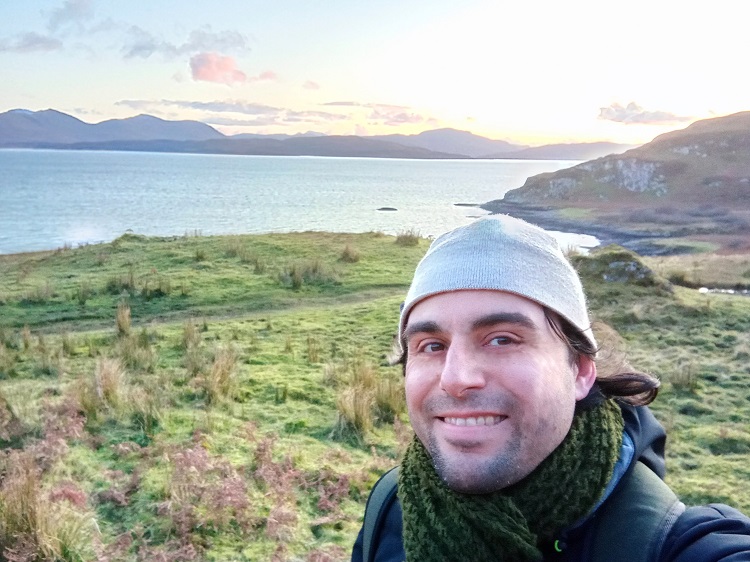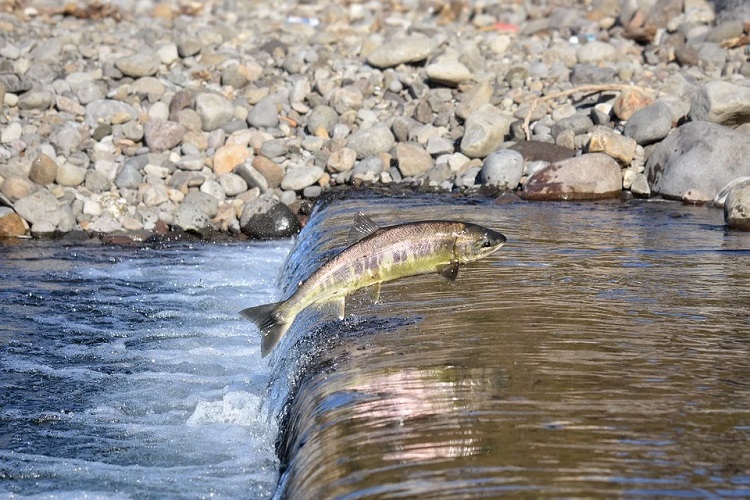NRI’s Dr Andrea Gatto, an environmental economist and researcher, is part of an exciting project which is exploring new perspectives for sustainable aquaculture models to enhance the resilience of the UK food system.
The Diverseafood project is led by the Scottish Association for Marine Science (SAMS), in partnership with Newcastle University, the Tyndall Centre for Climate Change at the University of Manchester, and NRI.
Diverseafood is funded through the UK’s Global Food Security Programme and is merging perspectives from different scientific fields: economics, management, biology, and other sciences. The research is focused on the west coast of Scotland – home to most of the British salmon aquaculture sites.
Aquaculture involves farming aquatic animals and/or plants in the oceans or freshwater. It can offer solutions for pressing issues connected with food security, health, unemployment, sustainability and climate change. The industry also provides opportunities in terms of new jobs, cleaner production and environmental protection.
Fish farming produces 20% of fish production in Europe and is a major source of employment with some 70,000 people relying on the aquaculture sector for their livelihoods. “With Diverseafood”, explains Dr Gatto, “we aim to show that new aquaculture systems and models could also help to diversify diets, build less polluting food production and lifestyles, and create additional income and jobs.”
Before Brexit, EU policies on aquaculture were devoted to improving its administration, and addressing issues with space, competitiveness and sustainability and currently these are still the central policies. However, since the 1st of January 2021, fish farmers are now getting to grips with the new UK-EU trade and cooperation rules.
 Many aquaculture projects bring huge economic benefits to Scotland, increasing local jobs and improving conditions for the local population. In terms of pre-Brexit salmon farm production figures, Scotland was the largest EU producer, and what happens in the immediate future regarding salmon exports to the EU and overseas countries, remains to be seen.
Many aquaculture projects bring huge economic benefits to Scotland, increasing local jobs and improving conditions for the local population. In terms of pre-Brexit salmon farm production figures, Scotland was the largest EU producer, and what happens in the immediate future regarding salmon exports to the EU and overseas countries, remains to be seen.
Fish farmers are now coping with new post-Brexit hurdles to access the EU markets. This has been reflected in delays in getting the product to EU costumers and an estimated loss of £3 million just in the first week of January, from cancelled orders, discounted fish and extra staffing costs, according to information released by the Scottish Salmon Producers Organisation.
Ecological threats represent other major problems for aquaculture – especially for salmon farms. Unsustainable practices and operational challenges resulting in pollution and parasitic infestation within the farms’ waters, risk endangering ecosystems and wild species, for example when farmed fish escape into the wild.
Dr Gatto explains: “marine ecosystems are becoming increasingly vulnerable to shocks due to unsustainable practices and climate change, which results in environmental degradation for fish farming. These issues can be solved by growing diverse species in the same underwater area, reproducing the marine ecosystems and following sustainable and resilient procedures.”
NRI is working on producing research to understand some sustainability features of aquaculture, such as the local community’s perceptions towards it, models that are able to capture the economic and biological aspects, and is examining the political economic forces influencing aquaculture. The Diverseafood project will ultimately benefit the local Scottish communities, the country, and a number of regional and national stakeholders.
Dr Gatto concludes that, “despite COVID-19 and Brexit, we have managed to reach important conclusions from the field. Our studies show some interesting results and we can see clearly that local communities are likely to welcome new sustainable farming procedures that pay attention to ecological issues, although additional communication efforts are needed to help people understand these new concepts.”
To find out more about:
NRI Livelihoods & Institutions Department
Scottish Association for Marine Science

